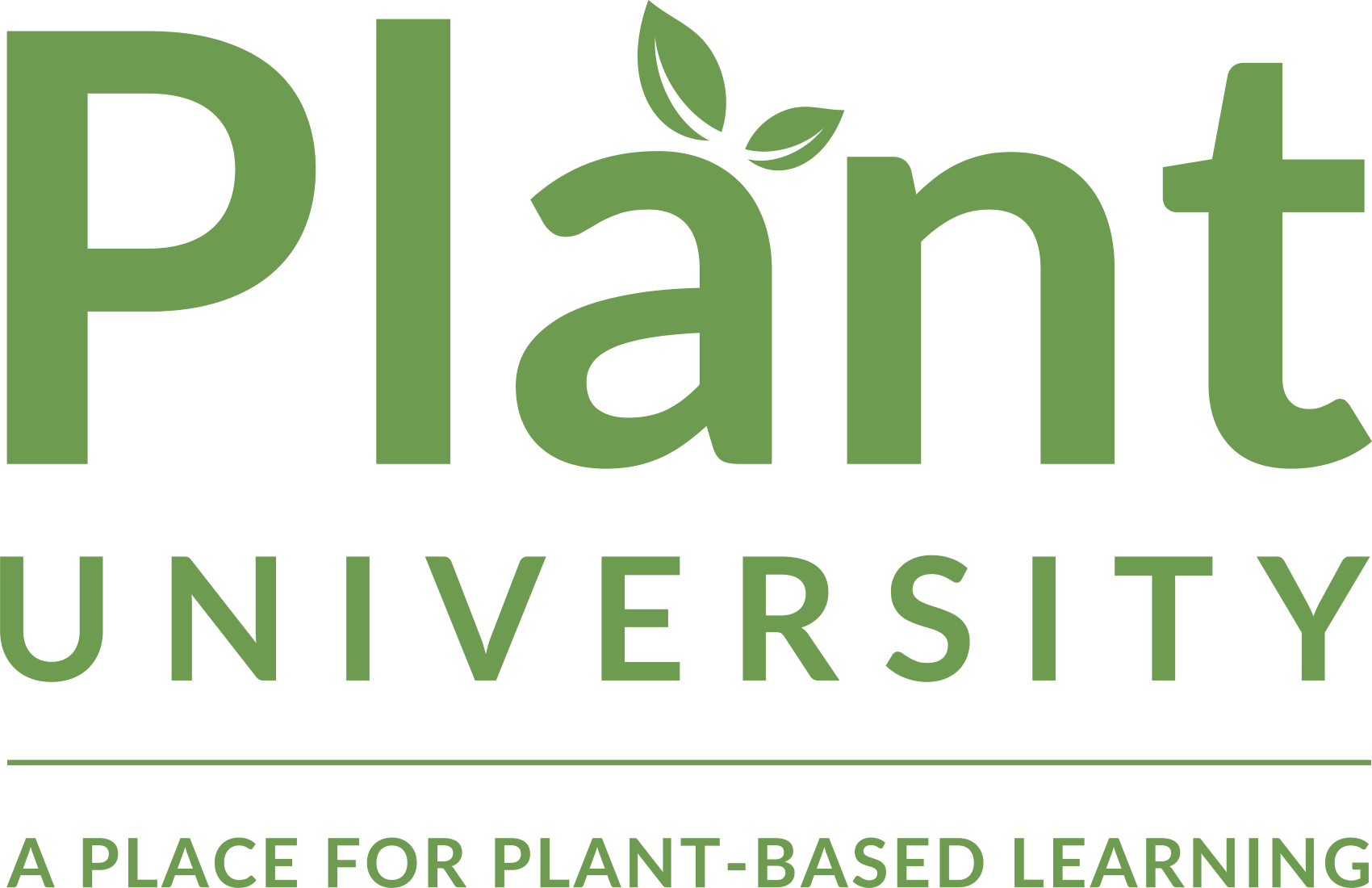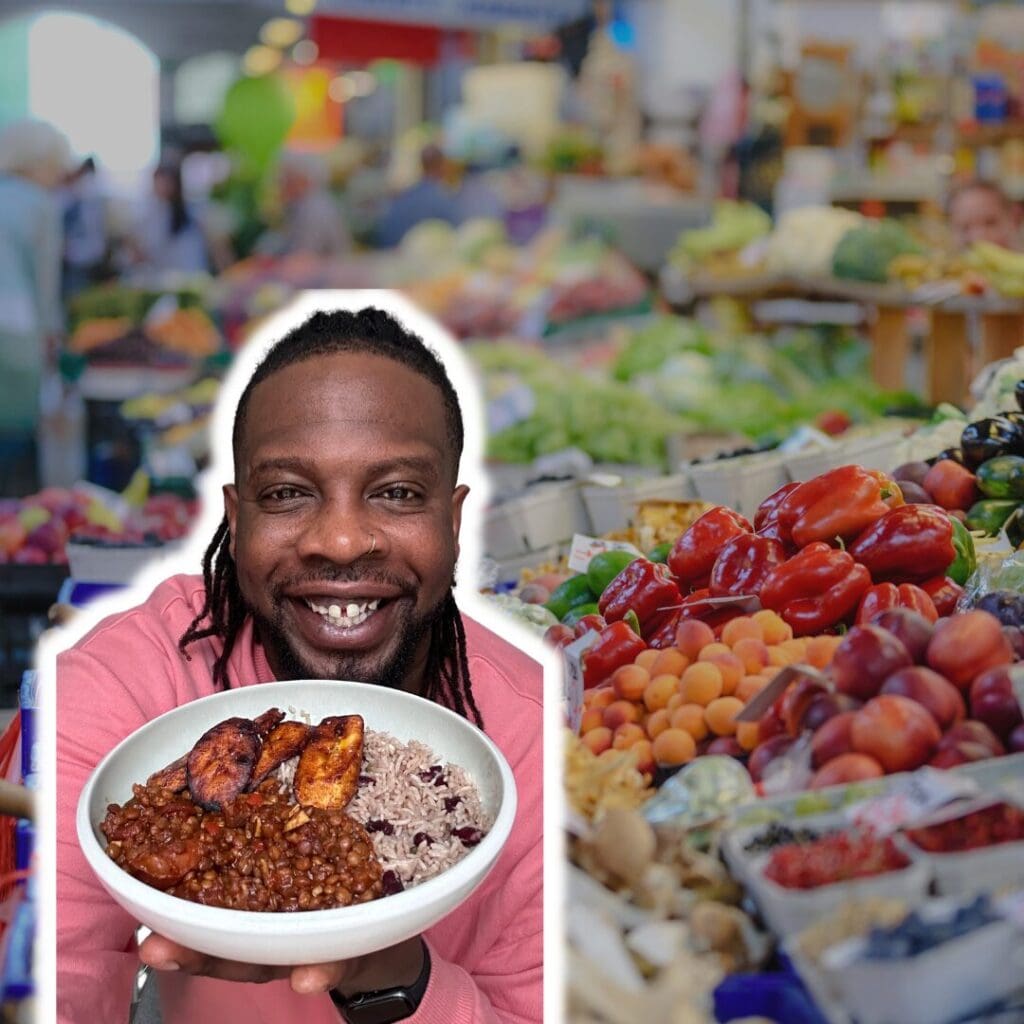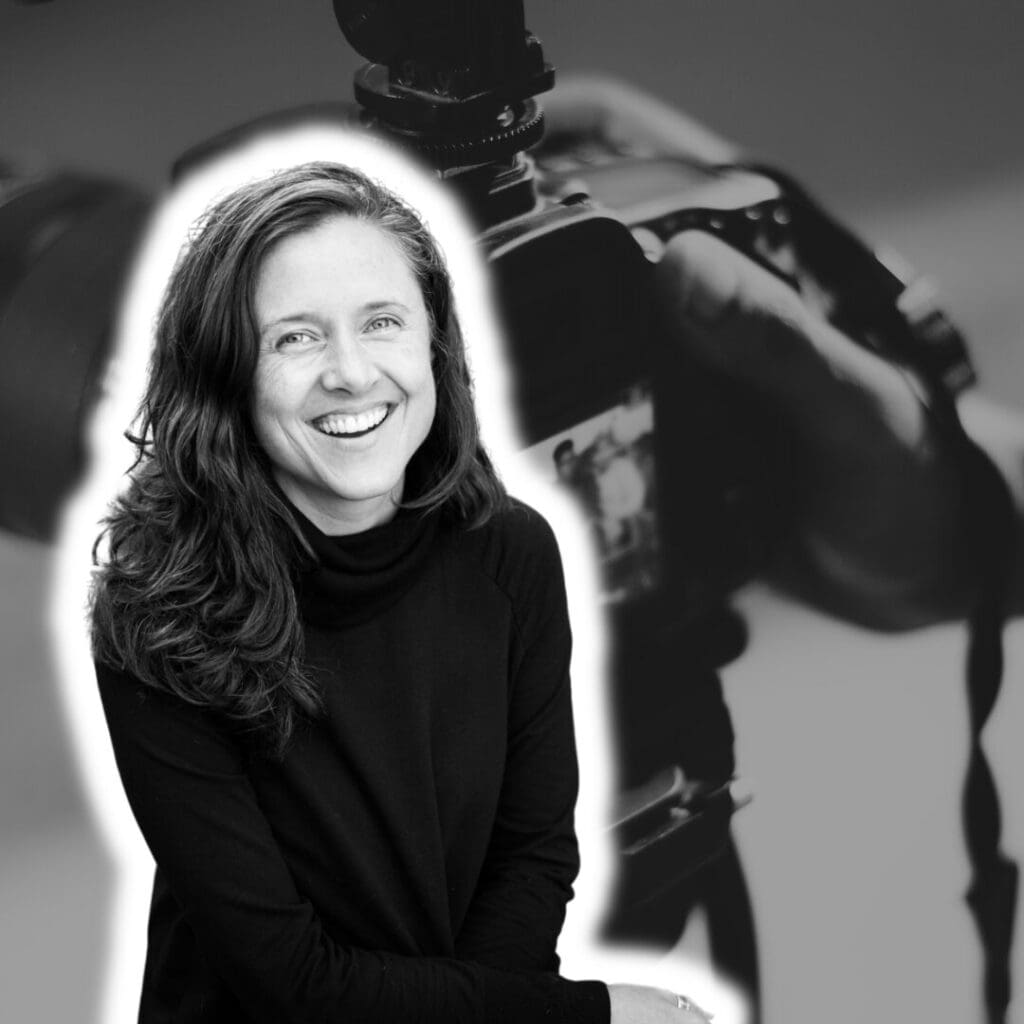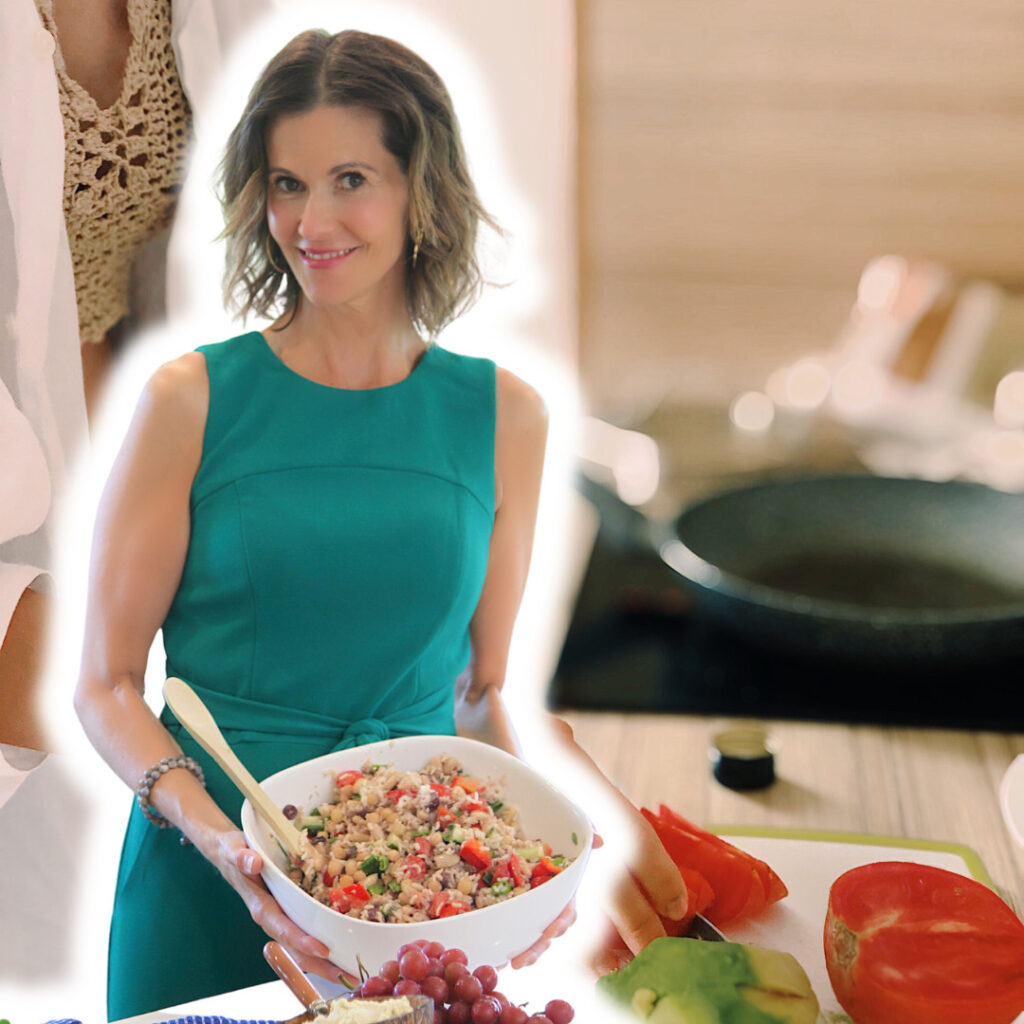I’m a family doctor; here’s what I tell my patients about going plant-based
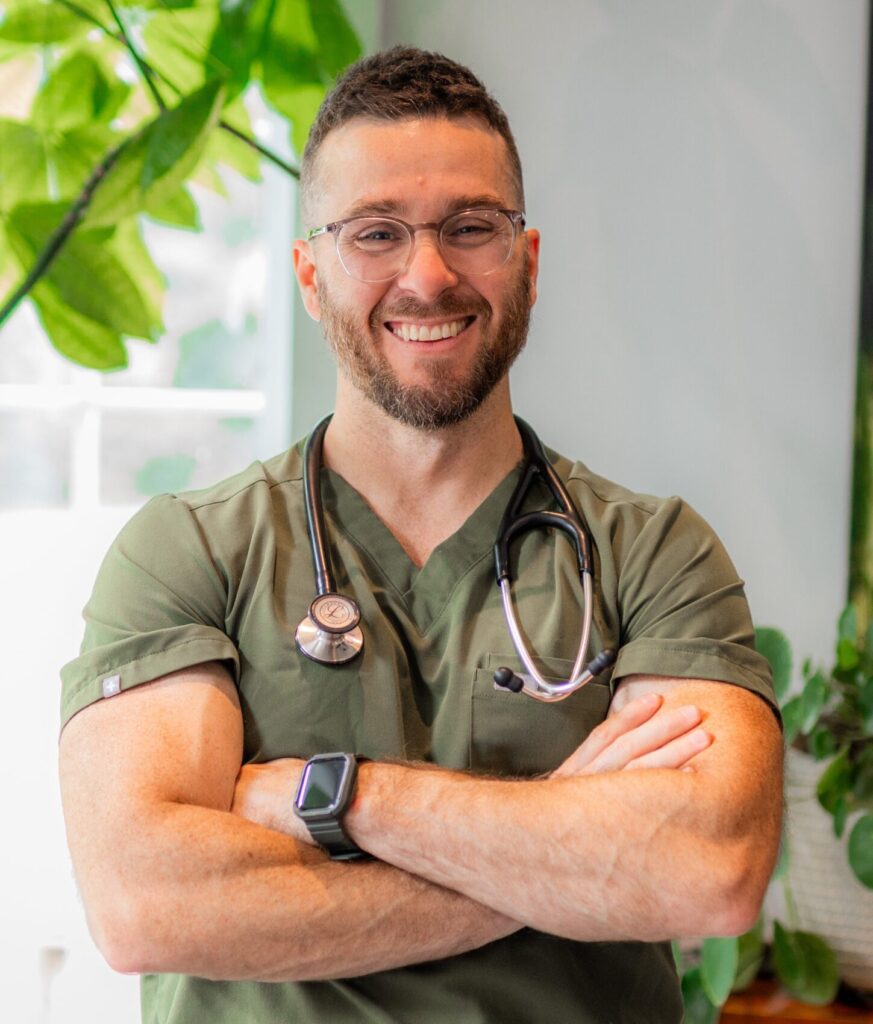
As part of our “Chat with a Vegan” series, Emma Levez Larocque sat down and spoke with Dr. Jules Cormier. Jules is a family doctor in Dieppe, New Brunswick. We hope you find his experience and advice helpful no matter where you are on your own plant-based journey.
You can follow Jules across multiple platforms:
If you’re interested in learning more after reading this blog post, you can find great resources on the Vancouver Humane Society’s PlantUniversity Platform and subscribe to get free plant-based recipes and be notified when the next interview is posted.
My name is Dr. Jules Cormier. I’m a family doctor practicing family medicine, lifestyle medicine, and skin surgery, and I’m based out of Dieppe, New Brunswick, on the east coast of Canada.
Why did you go vegan?
I became vegan after about 12 to 18 months of transitioning towards a plant-based diet and this changed my life considerably, considering that I was suffering from asthma, eczema, urticaria, and cholinergic angioedema. which can also be called exercise induced anaphylaxis. So, I transitioned to a plant-based diet for health reasons at the beginning.
But after about a year, once I was fully transitioned, I started to connect even more with the ethical side of it. And after watching Dominion online, I decided I wanted to be 100 percent vegan, and I never looked back since then. That’s been more than a decade now.
What was your biggest challenge in becoming plant-based?
When I went plant-based, my biggest challenge was probably trying to navigate my small town.
I’m from a small fishing village. So, telling people that you’re not consuming any animal products when you’re surrounded by fishermen and hunters was difficult for me. For a long time, I actually kept it quite secret until at some point I just couldn’t keep a secret anymore. So, just telling everyone around me was probably my biggest challenge.
And after that, well, it was accessing vegan food and plant-based options while eating out because when you’re from a small, small town, the plant-based options aren’t as refined. It was difficult to eat out and travel around from where I live, but once I was at home, I was good to go.
How did you overcome the challenge of eating out, or is it still difficult?
When I started about in 2012, it was more challenging and we found ourselves very often looking at menus beforehand and even emailing restaurants and calling chefs to see if they could prepare vegan options for us. And to my surprise, most of them could easily accommodate us. Nowadays, the vegan movement has grown exponentially.
I don’t meet that much resistance when eating away from home now. It was mostly when traveling that we’ve seen our challenges.
Even if the options aren’t plentiful, at least there were one or two options at most places where we used to go.
How do you work to spread the message about plant-based diets?
I try to spread the message about plant based diets and the vegan lifestyle pretty much everywhere I go. I have a website called Plant-Based Dr. Jules.
For the general public, I regularly publish free information about tips and tricks on how to transition. I want to make sure that people do it in a healthy way. I do most of that through my social media platforms. At work, I work at a teaching clinic where about 80 percent of future doctors will at some point come through our doors during their medical training. So, I try to have a trickle down effect where I can talk about plant-based lifestyle and ethics and climate change to future doctors, hoping that they’ll then talk to their patients about that.
Also, I have about 15 other doctor colleagues who are super open minded and a lot of people once they’ve read the data on the differences that a plant-based diet can make for health or for the climate, they’re a lot more open to changing. I know that if we can have the medical professionals on board and they can trickle that information down to their patient, I think we can reach a lot more people that way.
How do you encourage your patients to learn about plant-based diets?
I encourage my patients to learn about plant-based diets by simply looking at the data, which often shows that lowering your amount of animal products on your plate is often correlated to reduce risk of most of our chronic diseases. And as a doctor, I’m seeing these chronic diseases daily. So sometimes just linking their health conditions to what they’re putting on their plates is a way to kind of educate my patient on having a more plant-predominant diet.
Now, that being said, I send them to my website very often for free information on how to transition. I send them to my free recipe book, and I give them tips and tricks on how to substitute animal products and replace them with plants.
What advice would you give to someone who is finding it difficult to make the switch?
For someone who’s thinking about going vegan and finding it hard to make a switch, I’d suggest two things.
First of all, I’d say surround yourself with resources of like-minded people. When I started on my vegan journey, I subscribed to YouTube channels, to vegan community groups on Facebook, I watched documentaries. I got educated on all the facts.
My other tip would be start low and go slow.
It took me about 18 months probably to make a full transition. Within about 12 months, I had almost no animal products on my plate anymore, but I say small incremental changes will add up over time. It’s not about what you’re removing from your plate at the beginning.
That’s the way I transitioned and this way I felt a lot less friction with my daily life by just kind of making small steps in the right direction.
What is the biggest challenge you hear about and how do you help people address it?
One of the biggest obstacles in the way of people that want to change is simply our food culture. For a lot of people where I’m from, animal products is simply part of our culture. I very often refer back to the 2019 Canadian food guide, which was based purely on science, because there’s a lot of old traditions and culture that goes into the way that people eat. And unfortunately, people still think that you need meat to be healthy and you need meat to have muscle.
For a lot of people, it’s just lack of education. So, find solace in knowing that kind of the Canadian government is backing us by having a plant-predominant food guide. I think that that gives a lot of credibility to the movement. I think the Canadian food guide for a lot of people is the way to start.
It at least opens up their eyes to, it’s not just vegan propaganda. There’s a lot of signs behind why we should be eating a plant-predominant diet, regardless if you connect with the ethics of it or not.
What is the Plant-Based Academy?
The Plant-Based Academy is a project that I’m working on. It’s a mix of a podcast, my blog, and an online e-course that people can take and provides them with video lessons on how to transition towards a plant-based diet, step by step. I’ve been working on that for over a year and my goal is to publish it in 2024. Hopefully that can be a great resource for people that want to have the A to Z transition towards a plant-based diet.
What do you find most rewarding about the work that you do?
The most rewarding thing about promoting plant-based diets are the success stories. I mean, just today I had a patient with chronic abdominal pain that said, I just changed my diet and my symptoms went away. We’re talking about a patient that had undergone x-rays, ultrasound, CT scans, blood work- too many investigations where the issue was simply his diet.
And regularly I get messages of people on my Facebook and Instagram of how just making small changes has drastically improved their lives. I mean, I have patient getting rid of their CPAPs because they lost weight on their plant-based diets. I have patients reducing or even removing antihypertensive medication because they changed their diet.
So, I get that validation right from my patients that tell me about the success they’re having in either managing or even reversing some of their chronic medical conditions, basically through diet and through evidence-based plant-based nutrition.
This interview from PlantUniversity’s “Chat with a Vegan” series was hosted by Emma Levez Larocque of Plant-based RHN and featured Dr. Jules Cormier.
More posts like this
Chat with Ebenezer Odeniyi, vegan advocate and online cook
I’m an online cook; here’s how I advocate for plant-based eating…
I’m a photojournalist; here’s how I advocate for animals using the power of imagery
I’m a photojournalist; here’s how I advocate for animals using the…
Chat with a vegan: Stephanie Redcross West, business coach and marketing strategist
Chat with a vegan: Stephanie Redcross West, business coach and marketing…
Chat with a vegan: Dreena Burton, cookbook author and fascial stretch instructor
Chat with a Vegan: Dreena Burton, cookbook author and fascial stretch…
Chat with a vegan: Derek Simnett, nutritionist, YouTuber, and athlete
Chat with a Vegan: Derek Simnett, nutritionist, YouTuber, and athlete As…
Chat with a vegan: Pamela Fergusson, Registered Dietitian
Chat with a Vegan: Pamela Fergusson, Registered Dietitian As part of…
